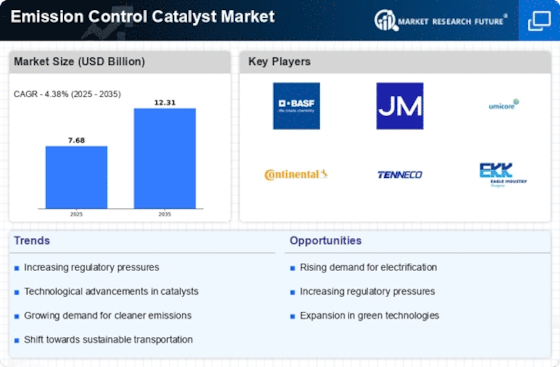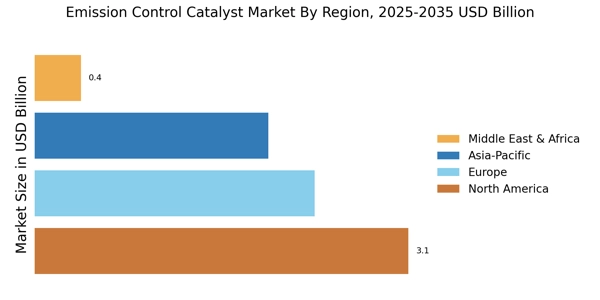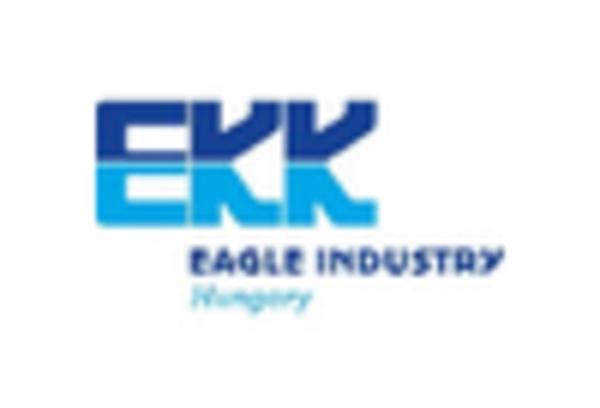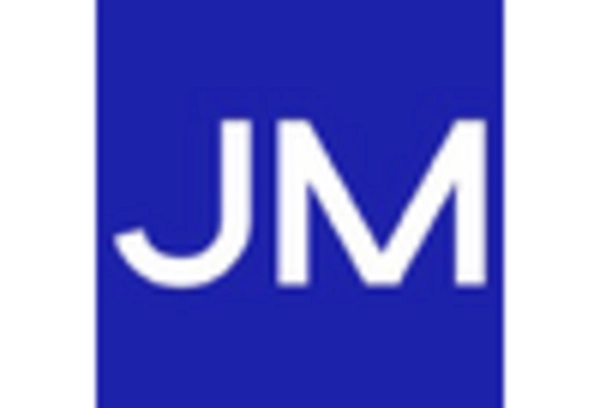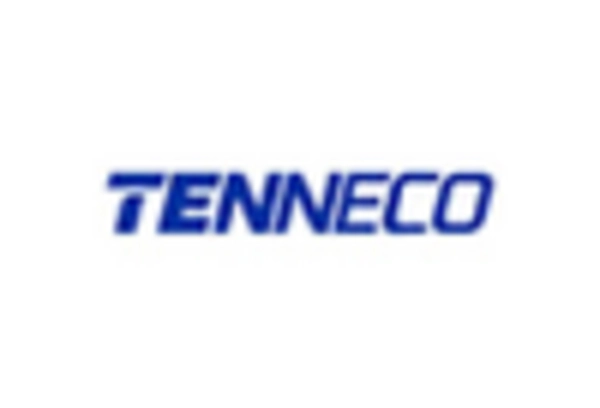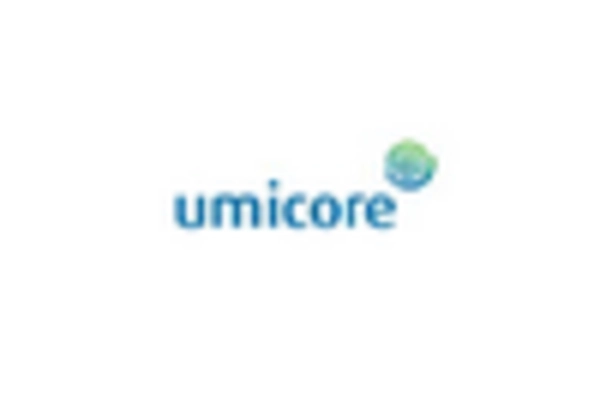Regulatory Influence
The Emission Control Catalyst Market is significantly shaped by stringent regulations aimed at reducing vehicular emissions. Governments worldwide have implemented various standards, such as Euro 6 in Europe and Tier 3 in the United States, which mandate lower levels of nitrogen oxides and particulate matter. These regulations compel automotive manufacturers to adopt advanced emission control technologies, thereby driving demand for catalysts. The market is projected to grow as compliance with these regulations becomes increasingly critical. In 2023, the market was valued at approximately USD 5 billion, with expectations of reaching USD 8 billion by 2028. This regulatory landscape not only influences product development but also encourages innovation in catalyst formulations, enhancing their efficiency and effectiveness.
Technological Advancements
Technological advancements play a pivotal role in the Emission Control Catalyst Market, as innovations in catalyst materials and designs lead to improved performance. The introduction of novel catalytic formulations, such as those utilizing palladium and platinum, enhances the efficiency of emission reduction. Furthermore, advancements in manufacturing processes, including 3D printing and nanotechnology, allow for the production of more effective catalysts with reduced environmental impact. In 2024, the market is expected to witness a compound annual growth rate of 6%, driven by these technological innovations. As manufacturers strive to meet evolving emission standards, the integration of smart technologies, such as real-time monitoring systems, is likely to become more prevalent, further propelling market growth.
Shift Towards Sustainability
The Emission Control Catalyst Market is increasingly influenced by a shift towards sustainability, as consumers and manufacturers alike prioritize environmentally friendly practices. This trend is evident in the automotive sector, where there is a growing demand for vehicles that not only comply with emission regulations but also contribute to a reduction in overall carbon footprints. The rise of electric vehicles (EVs) and hybrid technologies is reshaping the market landscape, as these vehicles often require advanced catalysts to optimize their performance. In 2025, the market for emission control catalysts in EVs is projected to account for approximately 20% of total sales, reflecting a significant shift in consumer preferences. This transition towards sustainable solutions is likely to drive innovation and investment in the catalyst sector.
Increasing Vehicle Production
The Emission Control Catalyst Market is directly impacted by the increasing production of vehicles across various segments, including passenger cars, commercial vehicles, and two-wheelers. As vehicle production rises, so does the demand for emission control solutions to meet regulatory requirements. In 2023, global vehicle production reached approximately 90 million units, with projections indicating a steady increase in the coming years. This growth is particularly pronounced in emerging markets, where rising disposable incomes and urbanization drive vehicle ownership. Consequently, the demand for emission control catalysts is expected to surge, with the market anticipated to expand at a rate of 5% annually. This trend underscores the critical role of catalysts in ensuring that new vehicles adhere to stringent emission standards.
Rising Environmental Awareness
Rising environmental awareness among consumers and industries is a key driver of the Emission Control Catalyst Market. As public concern regarding air quality and climate change intensifies, there is a growing demand for cleaner technologies. This awareness influences purchasing decisions, with consumers increasingly favoring vehicles equipped with advanced emission control systems. In 2024, it is estimated that over 60% of consumers will prioritize low-emission vehicles when making purchasing decisions. Additionally, industries are under pressure to adopt sustainable practices, leading to increased investments in emission control technologies. This shift not only drives market growth but also encourages manufacturers to innovate and enhance the effectiveness of their catalysts, ensuring compliance with evolving environmental standards.


